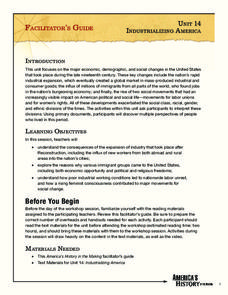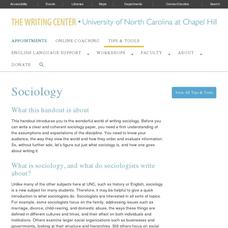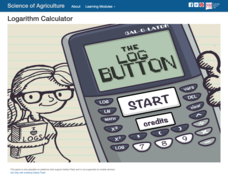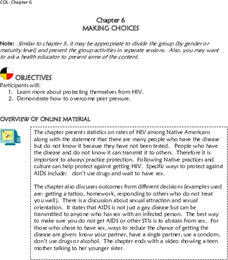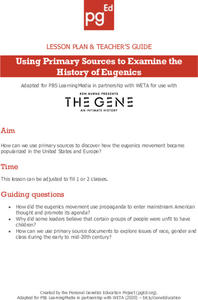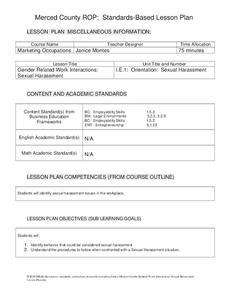Folger Shakespeare Library
Essential Everyday Bravery
Shakespeare's plays may be old, but they still have relevant lessons for today's world! A collection of lesson plans uses examples from The Merchant of Venice and District Merchants to teach about bravery. In addition to learning...
Ohio Center For Law-Related Education
Four Activities: Thurgood Marshall and the Nomination and Confirmation of Federal Judges
The process of nominating and confirming federal judges can sound like a lot of bureaucratic hoops, but a resource breaks down the steps of the Supreme Court nominations in a simpler manner. Learners participate in four activities that...
Annenberg Foundation
Industrializing America
Imagine an eight year old spindle boy working barefoot in a factory in the late 1800s. Scholars research the industrial period in American history in the 14th lesson of a 22-part series that explores the country's background. Groups...
University of North Carolina
Sociology
What exactly does sociology entail? Sociology is a broad field that covers many topics, including culture, mass media, and social movements. A helpful handout prepares scholars for typical writing found in college-level sociology...
Institute for Humane Education
Where Are the People like Me?
Are some characteristics more desired than others?Scholars examine attributes of characters in books, models in catalogs, and articles in magazines. Discussion leads to identifying characteristics they see more often as well as...
National Constitution Center
Explore Rights Around the World
How has the American Bill of Rights influenced the rest of the world? An interactive web activity helps individuals see the similarities between countries' bills of rights. A text-to-text tool compares the American Bill of Rights to...
K20 LEARN
Diversity Quilt: A Lesson on Culture
After brainstorming the various aspects of cultural identity, class members interview each other, examine video clips, and read stories to discover how these aspects reveal one's cultural identity. Individuals then craft a quilt square...
Syracuse University
Women's Suffrage Movement
Women gained the right to vote in the twentieth century, but the fight for equality dates back centuries. Using an invitation to an 1874 suffrage convention, eager historians consider the motivations behind supporters of the suffrage...
Learning Games Lab
Bacteria Sampling
Scholars explore the procedure for bacteria sampling in a virtual lab by first walking through a detailed step-by-step procedure of preparing the samples of raw milk and pasteurized milk, growing the bacteria, and comparing results....
Learning Games Lab
Gram Staining
Scholars use a lab simulation to test contaminated yogurt for bacteria by gram staining. They learn proper lab procedures for handling bacteria and for sterilizing equipment, and then walk through the process on their own to try gram...
Learning Games Lab
Controlling Water Activity in Food
Food storage matters! Scholars learn how the amount of water in corn can affect its rate of spoilage. They create a control group, then test three corn samples stored in three different locations for water activity. As a result of the...
Learning Games Lab
How to Use Oil Immersion Microscope
Teach the class how to use a microscope to identify bacteria in food. Scholars explore the different parts of the microscope and learn how to determine total magnification. They walk step-by-step through the procedure of preparing slides...
Learning Games Lab
The pH Scale and Meter Calibration
What are the different ways to test for pH? First, scholars explore the pH scale and a common way to test for acidity and alkalinity. Then, they learn about the importance of pH in food safety and why variance in pH could potentially...
Learning Games Lab
Nitrogen in Fertilizer
Nitrogen is an essential element for productive farming. An interactive lesson explores the chemical makeup of different fertilizers and their corresponding nitrogen content. The interactive challenges individuals to complete molecular...
Learning Games Lab
Nitrogen in Pollutants
Responsible farming is important for maintaining natural resources. Eager scientists complete a WebQuest to explore what happens to nitrogen when it enters the soil. They learn about the chemical makeup of nitrogen-based molecules and...
Learning Games Lab
Testing and Adjusting pH
Pupils learn how to control food spoilage by adjusting the food's pH. They see that one of the most dangerous bacteria can grow in food if people don't handle and store food properly. Using knowledge of the bacteria's preferred pH,...
Learning Games Lab
Scientific Graph Reading
Interpreting graphs is an essential skill for young scientists. An interactive online lesson gives individuals an opportunity to review the components of a graph and learn to read and interpret the shape of a graph. The lesson includes...
Learning Games Lab
The Magic of Reading Graphs
Making conclusions from graphs doesn't need to seem like magic. Learners explore an interactive lesson on reading graphs to strengthen their skills. The content discusses how to read the axes of a graph and draw conclusions based on the...
Learning Games Lab
Logarithm Calculator
Support your young scientists' knowledge of logarithms with a quick video lesson. The instruction first presents the relationship between a base-10 logarithm and an exponential equation. It then demonstrates how to use a calculator to...
Healthy Native Youth
Chapter 5: Learning About HIV/AIDS/STI's and Hepatitis Transmission
Middle schoolers delve deep into facts about HIV, AIDS, Hepatitis, and other STI's by way of discussion and a hands-on activity. Scholars ask and discuss questions anonymously using a Question Box. Two experiments showcase the...
Healthy Native Youth
Chapter 6: Making Choices
A lesson looks closely at risky behavior such as teen pregnancy and sexually transmitted diseases. Middle schoolers use a question box to ask questions anonymously. They role-play what life would be like if they became pregnant then...
PBS
Twirling in the Breeze
Blow classes away with a hands-on lesson investigating wind speed. Learners use common materials to design and construct anemometers. They then test their anemometers and collect data on the wind speed created by a fan.
Personal Genetics Education Project
Using Primary Sources to Examine the History of Eugenics
Eugenics philosophy takes survival of the fittest to a whole new level. With a research-focused lesson, young scientists examine the history of the eugenics movement and its impact on society. Pupils engage with a video clip, primary...
Curated OER
Marketing Occupations
Students investigate the practice of sexual harassment in the workplace. They watch a video of a sexual harassment situation and classify the different categories of behavior that are included in sexual harassment. Then students take a...
Other popular searches
- Gender Equality
- Gender Roles
- Gender Bias
- Gender Stereotypes
- Breaking Gender Stereotypes
- Gender Discrimination
- Gender Inequality
- Gender Studies
- Gender Equity
- Gender Issues
- Gender Differences
- Nouns Gender




